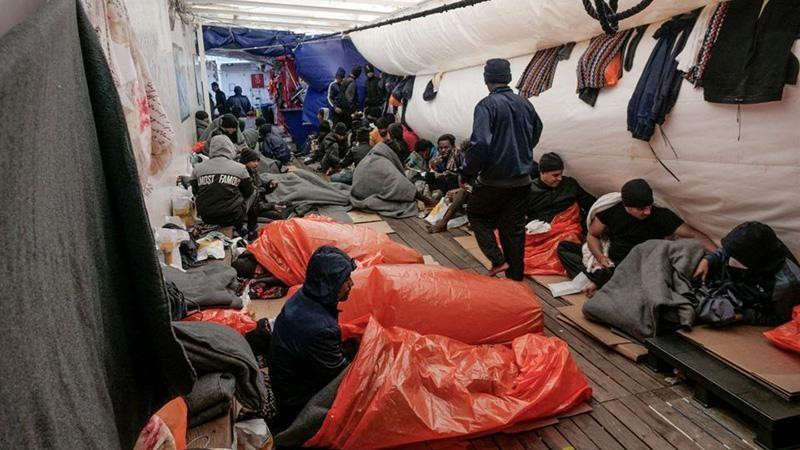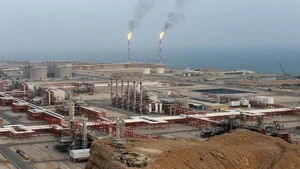Thousands of refugees are sheltering in cardboard boxes on the streets of Brussels. In some European countries, gyms, auditoriums and other places are also open to refugees at night.
Speaking to the New York Times, Basharmal Mohammadi, a migrant from Afghanistan to Belgium, said he and seven young Afghans lived under the stairs and shared cartons and a mattress. “I’ve never thought I would live on the streets like this in Europe...,” Mohammadi said.
The migrant stalemate is a reflection of the reality of the migrant situation in Europe, which can put severe pressure on the social security systems of many countries, but has yet to be paid due attention.
The wave of illegal migration into Europe hit a record high in 2022. The European Border and Coast Guard Agency (Frontex) said that the number of illegal border crossings into the European Union (EU), in the past nine months, has reached the highest level since 2016. The number of people entering the EU via the Balkan route is three times higher than in the same period in 2021 and 10 times higher than the 2018 level. The number of people trying to cross the Mediterranean to the EU also spiked, with more than 42,500 people, an increase of 44% over the same period in 2021. The migrant handling systems in some European countries are overloaded.
Experts say that the arrival of more asylum seekers puts pressure on scarce housing resources in France, Belgium and the Netherlands. Belgium’s State Secretary for Asylum and Migration, Nicole de Moor acknowledged that migration pressure is weighing on some EU countries.
The increase in the wave of migration to Europe is attributed to the economic crisis caused by the COVID-19 pandemic and the escalating tensions and conflicts in many places around the world, especially in the EU-related regions. Political instability in many countries, global food insecurity, epidemics, unemployment, and natural disasters make many people wish to leave their homeland to find a promised land.
Europe is also currently reeling from a series of crises, but the flow of migrants to the continent is still increasing sharply. EU Commissioner for Home Affairs, Ylva Johansson explained that migrants do not feel safe staying in their homeland.
Despite being a thorny issue, the migration crisis is rarely mentioned on the agenda of this year’s EU meetings, as attention has been focused on a host of other challenges, such as increasing inflation, severe energy shortage, and precarious people’s life.
Belgian Prime Minister Alexander De Croo emphasised, that Europe is in a serious migration crisis, but little attention is paid to it because several other crises are occurring at the same time.
The problem of migration is still a big and persistent challenge over recent years, causing deep divisions within the EU. Central and Eastern European countries such as the Czech Republic, Slovakia, Romania and Hungary oppose the EU’s plan to allocate quotas for migrants. Italy, one of the main destinations for migrants from North Africa, is applying a strong policy following the campaign pledge of female Prime Minister Giorgia Meloni.
A few days ago, the new Italian government closed ports to rescue ships operated by non-government organisations and stressed that countries whose flag is flown by rescue boats bear the responsibility to receive migrants. This may lead to legal disputes between countries and cause a sharp increase in the number of people crossing the border in other Mediterranean countries, such as Spain, similar to the 2018 scenario.
European officials warn that the flow of illegal migrants to Europe will increase sharply in 2023. Amid a series of difficulties, the leaders of the Old Continent continue to have a headache dealing with the consequences of the migration crisis, especially pressures on security and social welfare.
















